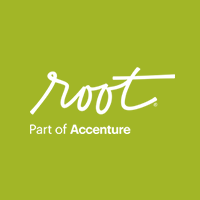Below is a guest blog from Robert E. Quinn, author, Professor Emeritus at the University of Michigan, Ross School of Business and co-founder of the Center for Positive Organizations at the University of Michigan.
A recent survey conducted by Cigna found that 50% of Americans feel lonely. That is an astounding number.
If you are standing in a room with one other person, one of you feels lonely.
Here are a couple more data points from that study.
- Only around half of Americans (53%) have meaningful in-person social interactions, such as having an extended conversation with a friend or spending quality time with family, on a daily basis.
- Two in five Americans sometimes or always feel that their relationships are not meaningful (43%) and that they are isolated from others (43%).
- One in five people report they rarely or never feel close to people (20%) or feel like there are people they can talk to (18%).
We All Hunger for Meaningful Human Connections
These numbers are astounding. Because we all hunger for meaningful human connections, there is an opportunity for organizations to create cultures that will grow people while simultaneously growing the bottom line. A simple story of meaningful connections comes to mind.
A grocery chain did training for employees on how to connect meaningfully with customers. A young bagboy with special needs listened carefully and took the message to heart. One day the store manager was perplexed to see that there were four open lines at cash registers, but all the customers were in the same line. When he asked one customer why, the person replied, “I want to be in his line.” He pointed at the bagboy with special needs.
It turns out the bagboy stayed up at night writing unique messages of gratitude thanking people for shopping in “his” store. He put one note in the bag of each customer. The messages were so sincere, that once a customer received one, they insisted on being in his line during future purchases.
Authentic Caring
This principle of authentic caring holds for first-line employees and it holds in the C-Suite. In our new book (written with co-author Anjan Thakor), we share a story about Edward Jones, the financial services company. Jim Weddle, the CEO at the time of our interview, told us that the company’s purpose was not to make a profit, not to help clients decrease taxes or increase income. The purpose was to help individuals meet their most important financial goals like educating their children, preparing for retirement, or leaving a legacy. Company profit was simply a metric that indicated how well the purpose was being served.
When this concept was first introduced, some partners left. They could not accept the unconventional notion that profit was not an organization’s first purpose. This pattern exists in many organizations.
For years that purpose shift at Edward Jones has been a magnet that attracts clients. When clients get assistance in clarifying what they really want and aligning it with their desired future, they feel well looked after. They feel understood and cared for, which is at the heart of connection. Providing authentic compassion builds loyalty. The positive reaction of clients feeds back to employees and sparks their growth and the growth of the organization.
People have longed for connection at all times and in all places, but currently there is an even greater opportunity to provide it. If you do this for the people that work for and with you, and for your clients, they will be become your greatest cheerleaders, business partners, and even friends. The hunger for connection is an opportunity for purpose-driven leaders.






